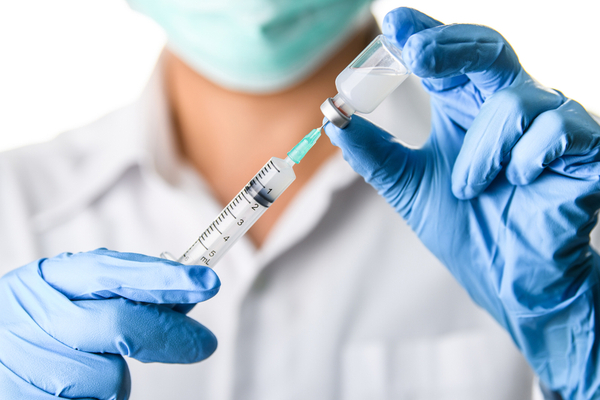If you haven’t had or been vaccinated against COVID-19 in the last few months, the U.S. Centers for Disease Control and Prevention (CDC) says you should get a new booster shot this fall. The latest shots, which were FDA-authorized in late August and are available now, were designed specfically to target currently circulating – and extremely contagious – Omicron variants.
The CDC says the new boosters can be given at the same time as a seasonal flu shots. And anyone who’s been in a Rite Aid lately knows they are always advocating doubling up on your vaccines. However, should you get both jabs at once, or space them out?
Though the opinion isn’t universal, many experts, including White House Medical Adviser Dr. Anthony Fauci, say you should get your COVID-19 booster as soon as you’re eligible—which is at least two months after your last vaccine dose or three months after your last SARS-CoV-2 infection.
In a recent podcast interview, Dr. Ashish Jha, the White House’s COVID-19 response coordinator, recommended getting boosted by Halloween to ensure you’re protected for the holidays and the usual winter virus season. “Get it now. If you’ve been vaccinated or [recently] infected, it’s fine to wait a little longer,” Jha said. “But don’t wait too long. Don’t wait until you get into late November, December. Do it sooner rather than later.”
Jha’s suggested booster timing lines up with the CDC’s advice on flu shots, which is to get vaccinated by the end of October. And he has suggested that people could get both shots at once. “I really believe this is why God gave us two arms—one for the flu shot and the other one for the COVID shot,” Jha said during a recent press briefing.
It IS safe to get both shots on the same day. Just be aware that both vaccines can cause side effects—including soreness at the injection site, headache, fever, nausea, fatigue, and muscle aches—so while you may feel crummy if you double up, there’s no medical reason to avoid doing so. “If a person wants to get both at the same time, they can,” says Dr. Alicia Fry, chief of the epidemiology and prevention branch within the CDC’s influenza division. “If that works for that person, that is a very efficient use of their time.”
There are plenty of variables go into gaming out the ideal vaccination schedule. For people at high risk of severe COVID-19 or influenza, it may be worth having a conversation with a health care provider to weigh those specifics—but most people don’t need to stress too much about timing, Zimmerman says. In the end, the best time to get vaccinated is whenever you’ll actually do it. And if getting a flu shot and a COVID-19 booster simultaneously is the only way you’ll get both, a two-shot appointment may be the way to go.
—
Photo Credit: PhotobyTawat / Shutterstock.com
